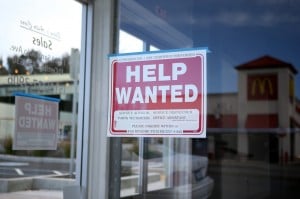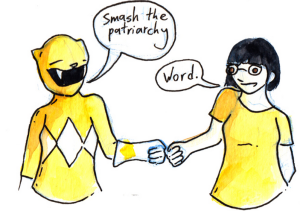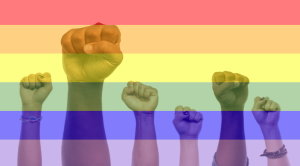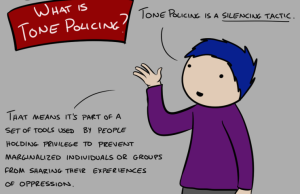My maternal grandmother never referred to herself as a feminist. I’m not sure if she ever came across the term.
However, throughout my childhood and into my womanhood, my grandmother instilled in me what I would come to learn are core values in the foundation of feminism.
It started when I was a little girl when she told me the story about how our family escaped from sharecropping. It instilled in me a sense of self-preservation and freedom.
Then, in my teenage years, she began to share her inner thoughts and reflections about life, specifically life as a woman.
As I grew older, her words and actions had a profound effect on how I viewed womanhood, marriage, money management, social justice, and inner peace.
Here are six stories that helped to mold my feminist foundation.
1. Marriage Is Not Your Greatest Achievement
At 21 years old, I told my grandmother about my recent engagement. I thought she would be happy. Yet, she was more horrified than anything.
“You have so many more opportunities than I did,” she said. Then she provided me with an alternative route. Her exact words were, “Go to the movies. Go shopping.”
I couldn’t believe what I was hearing. Here I was, sharing with her what I thought was the best news of my life, and she tells me to go watch a movie?
Perhaps it was because at the time she understood my life and personality more than I did. My grandmother was right, and I’m glad that the engagement was eventually called off.
We’ve been taught to dream about our wedding dresses, but hardly ever taught to dream about our freedom (professionally, creatively, or otherwise).
She helped me to realize that I had overly romanticized marriage, as many young girls had been socialized to do. And I had not romanticized enough my own inner peace, individuality, and freedom.
Marriage can be a wonderful experience. But contrary to popular belief, it isn’t a woman’s greatest achievement.
2. Break Out of Boxes
As much as we’d like to think that mainstream society has changed in regards to women and housework, we still have a long way to go.
Almost every commercial for cleaning products features women. There is even one dish detergent commercial that claims to help women clean and beautify their hands at the same time. The ridiculousness of this ad makes you wonder if we’re still in the 1950s.
It reminds me of when my grandmother shared one of her most heart-wrenching reflections. She said, “When I was younger, I used to scrub the floors and change the drapes. It was so important to me to make sure it was clean. Now sometimes when I think about it, I just sit here and cry. It didn’t mean anything. Someone was just going to come and dirty it up again.”
This belief that domestic service and housework are somehow a woman’s duty is a social construct that has been used to subdue and silence women. Many women and men have bought into this, believing that how good a woman is at domestic work is an indicator of her value.
My grandmother recognized this more clearly as she grew older, having time to reflect. She wanted to stress the importance of enjoying life while not allowing yourself to be boxed into pre-determined roles.
It’s important to recognize that societal gender roles don’t define you.
3. Fight the Fear
“Reach for the stars, and you just might land on the moon” is what my grandmother told me after I talked her about some upcoming life choices.
Many people have said this phrase, but as usual, thoughts stick with you when they come from a familiar source.
As a young Black woman, I’ve found that fear grips me in certain situations. Sometimes I’m unsure of what to ask for or how far I can go.
It turns out I’m not alone.
Studies show that Black women have a harder time during salary negotiations, usually settling for the first offer.
To be fair, this probably has more to do with desperation in just wanting to get the job. Still, the overall truth is that we don’t ask for enough. We don’t ask for enough when it comes to our careers or even in personal relationships.
It’s hard to set a higher standard when you’re afraid to lose the opportunity in front of you. But my grandmother’s words have encouraged me to take more chances and refuse to settle.
4. Freedom and Financial Independence
My grandmother was 15 years old when she married my grandfather.
As a newlywed, she told him, “I won’t go in your wallet and you won’t go in my purse.” Money was something you needed, along with privacy and independence.
She started out as a stay-at-home mom, then one year decided to get a temporary job in order to buy extra Christmas presents for their children. She ended up working for over 30 years, buying her own cars, a house, and getting an excellent pension plan.
Financial independence provides women with the power to make key choices over their lives.
When women are financially dependent it increases their likelihood of staying in abusive relationships that they would have otherwise left. Lack of financial resources also puts a strain on a woman’s ability to control her reproductive rights.
My grandmother’s mother gave birth to 19 children, my grandmother had six, and my mother had three. The difference between all of them was increased access to healthcare, financial stability and education.
5. An Education Can Get You Further
“I was pregnant with Beth when I graduated,” my grandmother told me. She proudly showed off her graduation picture.
As a teenage bride, my grandmother explained how she had dropped out of school. Yet, she was always determined to go further in her education.
It took her years, but she finally earned her high school diploma in the late 1960s, while she was pregnant with her sixth child.
She advocated that education opened doors, encouraging me throughout college and graduate school.
According to the United Nations, the higher a woman goes in her education, the more empowered she becomes being able to reduce poverty, gain access to health care, and understand her rights.
These facts are evident in my family’s progression. Over the course of four generations, women in our family went from no education, to high school diploma, to college degree, to graduate degrees. This resulted in economic upward mobility, entrepreneurship and increased political involvement.
There are definitely people that have become successful entrepreneurs and political organizers without an extensive education, but our access to education made us more aware of certain opportunities.
6. Social Justice Is More Than a Catchy Phrase
To my knowledge, my grandmother was never politically involved past making campaign donations. But she was very socially aware concerning local communities.
One day, she said, “I have to make a few stops.” She handed me several bags of sausages. I assumed we were taking them to church for some event, but she drove right up to a known crack house and gave out food.
The people surrounding the dilapidated building were visibly struggling with addiction. Many of them were people that society had forgotten, but they all knew her name.
“Thank you, Mrs. Jones. I’ll get myself together one day. One day, I’m going to go to church,” they said.
For them, she didn’t have many words, no condemnation. She just wanted them to eat and know that someone cared. We then made a stop at another impoverished home, this time giving sausages to children. They all knew her name as well. This was not Christmas or Thanksgiving, just something she did regularly.
It’s imperative that we talk about the ills of society, to debate it and theorize. However, actually crossing the barriers of poverty and addiction in order to lend a helping hand lets people know that social justice is more than just a catchy phrase.
It’s action. It’s community involvement on the most basic, everyday level. It’s recognizing the humanity in others. It’s also a core Black feminist value.
***
I had the honor of having my grandmother, Hattie Virginia Jones, in my life until she passed away in 2012. These are just a few examples of how my grandmother unknowingly taught me to be a feminist.
Too often, feminism is viewed in the guise of academic theory. Yet, sharecropper’s daughters, nurses, and nannies carry valuable perspectives that create the groundwork for many of us to forge ahead.
[do_widget id=”text-101″]
Jessica Ann Mitchell (aka JAM), is an award winning writer, activist, and poet. She has a MA in Pan African Studies and an MS in Public Relations from Syracuse University. Her writings about race, ethnicity and feminism have been featured across the web. She is founder of Black Bloggers Connect, the leading social network connecting bloggers and journalists from the Pan African world. Her blog OurLegaci.com reached 1.5 million readers worldwide in 2013. Most importantly, JAM is a feminist with a Pan African framework, focusing strongly on issues of social justice. Learn more about her work at JessicaAnnMitchell.com. Follow her on Twitter @TweetingJAM.
Search our 3000+ articles!
Read our articles about:
Our online racial justice training
Used by hundreds of universities, non-profits, and businesses.
Click to learn more





















